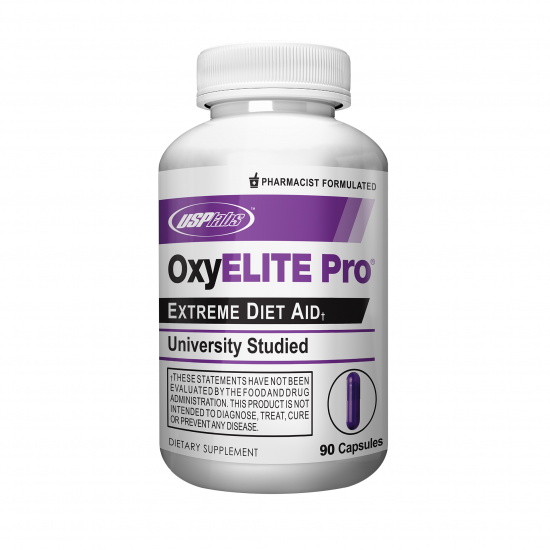The quest for a perfect silhouette has spurred a bustling industry of weight loss solutions, with pills and supplements often centering the debate. The storied grappling with the truth about weight loss has witnessed everything from outrageous fads to dedicated scientific inquiry. It wasn’t until the late 1990s that the FDA stepped in, driven by concerns over safety and wading through the complexities of medication efficacy. Historically, these pharmaceutical fixations promised much, yet delivered slimmer margins of success—only about 4% to 5% weight loss in the average consumer.
Fast forward to today, and the landscape appears different. The $2 billion weight loss supplements industry, still largely untamed by FDA regulations, finds itself competing with a more sophisticated cadre of prescription meds. The latest contenders, backed by clinical gravitas, purport not only safety but also increased effectiveness—some boasting a significant 10%-15% body weight reduction, with outliers reporting up to a 20% plummet. These are no small feats in a world where cutting-edge medicine whispers hope into the age-old dialogue of weight loss.
Yet, despite these promising narratives, there remains a caveat—a crucial duet with lifestyle alterations. These modern concoctions don’t absolve the individual from the responsibility of dietary mindfulness and physical rigor. They are adjuncts, not substitutes. Meanwhile, tirzepatide emerges as the current heavyweight champion of weight loss pills, suitable for a select demographic rigorously assessed for eligibility. Long-term therapy looms large on the prescriptions, debunking the misconceptions of swift, effortless solutions. The intermingling of traditional diet, exercise, and forward-leaning pharmacotherapy marks a fresh chapter in the annals of weight management. Let’s delve in and unearth the veiled truths.

Trust About Weight Loss Pills
Weight loss pills, the poster children of magical body transformation fantasies, sprint through history with a heavy baggage of safety concerns. The FDA, recognizing the past perils, now keeps a cautious watch. Initially, diet pills were a letdown, scraping off a mere 4% to 5% of body weight, making waves disproportionate to their promises. A staggering $2 billion vested in the supplement industry does not necessarily equate to a regulated assurance of their potency or harmlessness.
In the vein of hope, a more efficacious generation emerges with FDA-sanctioned pharmaceuticals. The luster of these new pills isn’t merely their impressive results—upwards of 10%-15%, sometimes more—but their complementarity with a regimen of diet and exercise. The mechanisms are varied: some suppress the voraciousness of appetite, while others meddle with the body’s very convolutions to inhibit fat absorption. The wheels turn by tweaking blood sugar, harnessing gut physiology, and tinkering with the realms of mood and stress.
Yet, their idyllic existence isn’t without a bout of backlash. Side effects tread closely behind, often leading a digestive parade of discontentment and, occasionally, more sinister health predicaments. Suitability for weight loss medications is a tailored affair, assessing commitment to lifestyle modulation against a backdrop of conditions such as BMI typing and concomitant health concerns. No one pill reigns supreme; tirzepatide may be the strongest, but not the universal solution. Their role in the weight loss narrative is far from transient; these medications may chronicle a long-term relationship with their consumers, advocating lasting change over ephemeral fixes.
Roster of Medical Advances
Gliding through the roster of medical advances, we encounter familiar names: GLP-1 agonists, orlistat, phentermine/topiramate, naltrexone/bupropion, and setmelanotide. Each plays its part in the symphony of weight loss; some by threading on the appetite’s strings, others by lessening the body’s snare of nutrients, or heightening the tempo of fat burning. FDA nods grace these options, promising a reduction in poundage by 5% to 10% if allied with lifestyle overhauls. The tale of the tape reads an intersection of medical intervention, physiological modulation, and the evergreen wisdom of portioned nutrition and exercise.
Buy Ephedra Fat Burner

With its powerful ephedra fat burner and extreme energy, it’s designed to maximize results. Boost metabolism, increase energy, and accelerate fat burning with Yellow Bullet Xtreme.
The Attraction of Weight Loss Pills
The allure of weight loss pills transcends their potential efficacy; it’s the narrative of heightened ease that clasps the public’s yearning gaze. The pharmacological beatification of obesity treatment materials through the availability of drugs like GLP-1 receptor agonists. The rising curve of Google inquiries and scripts for Wegovy and Ozempic illustrates the population’s mounting interest. Eligibility for these medical interventions sifts through a sieve of BMI metrics and medical chronicles, ensuring a prudent selection.
On the shelves are medications boasting names such as semaglutide, tirzepatide, and the more conservative orlistat—each carrying a burden of hope and biochemical promissory notes. The horizon hints at future saviors: orforglipron, retatrutide, and others aiming their sights at the hormonal and metabolic fabric of human flesh. The game is suppression of hunger and the exaltation of fullness, all piloted by hormonal maestros.
Yet, with their efficacy and medically backed utility is a list of disclaimers. These medications, while potent, are not the panacea for every struggling soul. Their side effects loom large, and discontinuation signals the threat of regained weight. The ideal candidates are those whose silhouettes are marked by obesity or conditions it so often ushers in—diabetes, hypertension, and their kin. Thrust into the already complicated dynamics of health access, affordability poses a gauntlet; the hefty price tags of these drugs often preclude the most vulnerable, marooned by the absence of insurance coverage.
Amid these financial and physiological battlegrounds, the drugs still rise, showcasing marked success in the trenches of human adiposity. Wegovy, for instance, trims a report card boasting a 15% decrement in weight but not without a note of adverse reactions. Nevertheless, cardiovascular trophies gleam in the cabinet, particularly for the diabetes-afflicted populace, as blood sugars stabilize and blood vessels cheer.
The Effectiveness of Weight Loss Pills
Weight loss pills, particularly those with FDA blessings, present a dance of promise and practicality. GLP-1 agonists, alongside their pharmacological cousins, propose a strategy of weight reduction that plays well with lifestyle amendments, often shedding 5% to 10% of initial body weight. And yet, newer champions—semaglutide, liraglutide, and their ilk—paint even broader strokes of success, edging towards 15%-20% weight diminution for some. The common thread lies in appetite modulation, fat absorption reduction, and the pioneering tirzepatide, which cues both hunger and satiety in an elegant metabolic ballet.
Weight loss pills strut forth as weapons for those whose BMI forge past the threshold of 30 or harbor ailments such as diabetes, a reminder that excess weight isn’t carried alone but often accompanied by a suite of health troubles craving alleviation. As part of an orchestra that involves the timeless classics—diet and exercise—weight loss medications tune to a harmony of sustained effort and medical intervention.
The narrative steeply inclines, with prescription virtuosos potentially dispatching a significant 3% to 12% additional loss compared to lifestyle choreography alone. What emerges is an interplay of biochemistry and behavior, prescription pads entwining with the laces of gym shoes, and doctors’ orders folding into the pages of dietary diaries.
FDA-Approved Weight Loss Medications
At this juncture of our odyssey into weight loss aids, we open the vault to FDA sanctuaries. Embodied in the likes of phentermine, orlistat, and semaglutide, these long-term hallmarks publicly proclaim their allegiance to the fight against obesity. The plot thickens with GLP-1 receptor champions semaglutide and tirzepatide, whose inception sprang from the rich soil of diabetic treatment but flourished in the garden of adiposity reduction. They whisper promises to those marked by medical drawings of obesity and related afflictions—hypertension, cholesterol, and type 2 diabetes.
Phentermine garners admiration for its extensive use, as does phentermine-topiramate for the migraine-prone with weighty concerns. Meanwhile, naltrexone-bupropion waltzes into the brain’s reward centers, curbing cravings and calming appetites. Orlistat stands guard, a sentinel against the fat-laden caloric invaders of our meals. These medications, nestled within a framework of diet and exercise, hold court for those whose BMIs soar and for whom pharmaceutical grace enables a lighter tread on life’s scales.
Potential Risks and Side Effects
However, even amid such progress, the shadow of risk remains unshaken. Weight loss pills, heralded for their potential, still harbor a spectrum of side effects—digestive upsets, quickened heartbeats, and elevated pressures threatening the heart’s calm. Stimulants within induce wakefulness, agitation, stirring the mind’s equilibrium—a discordant note in the symphony of wellness. More gravely, certain pills may stain the liver with toxicity while others invoke the wrath of the kidneys.
The newer drugs, semaglutide, and its brethren, despite their charm, do not exempt themselves from side effects. Gastrointestinal trials, nausea, pancreatitis—all potential suitors to the hand of those who dare to embark on this pharmaceutical journey. Even FDA-cherished medications wield digestive discomforts and graver concerns, such as the specter of thyroid cancer or visions blurred by the strain on the eyes. Each pill comes with a caveat, a list of side complications that one must entertain as both guest and potential adversary.
The Role of Diet and Exercise
Weight loss drugs proclaim alliance with lifestyle changes for an effective crusade against excess weight. GLP-1 agonists, orlistat, and their pharmacological cohort band together with diet and exercise, potentially trimming 5%-10% of bodily mass. They march under the banner of comprehensive approaches, suitable for the diet-compliant and the physically active.
Beyond the strict confines of measurements, the invocation leans heavily on the need for long-term commitment. Daily routines infused with exercise, step counts quantified with technological aides, and plates colored by the spectrum of nutritional diversity—all form the bedrock of sustainable weight loss. It echoes the premise: medications not as standalone saviors but as partners to the fundamental currencies of health—smart nutrition and earnest physical exertion.
Natural vs. Synthetic Weight Loss Supplements
The dichotomy of natural versus synthetic supplements casts shadows over the weight loss terrain. The former, sourced from the rich tapestry of whole foods, battles for a foothold against lab-conjured creations. Studies often raise the banner for nature’s offerings, speaking of higher rates of absorption and gentler engagement with the body’s chemistry—echoed in the saga of vitamin E’s divergent paths, the natural outshining the artificial.
Yet, the narrative juxtaposes against the checkered knowledge surrounding synthetic supplemants. Some studies hymn their virtues in averting cardiac woes and malignant growths, while others strike discordant chords, questioning their benefit, or even casting shadows of cancer risks. The stage gleams with warnings; overconsumption of synthetic encapsulations may prove deleterious, with inaccurate labels leading to toxic bodily buildups.
Synthetic fat burners, infused with dangerous potentials, raise alarms with elevated heartbeats and sleepless nights. Contrast this against nature’s gentle arsenal—green tea, garcinia cambogia, inviting no harm but offering the caress of safe and sound weight management. A tale of two worlds: one where the natural basks in better absorption and lower risks, and the synthetic stands under a pall of cautious scrutiny.
Consumer Beware: The Issue of False Marketing
But herein lies a snare—the seductive strings of false marketing. Pledges of weight loss, stunning and swift, whisper from labels and screens, tempting the eager but delivering little more than mirages. These dishonest overtures, festooned with unattainable results and fraught with deception, can incur the wrath of health calamity and economic waste. Hidden within fake pills may lurk ingredients of harm, ensnaring the unsuspecting in webs of serious health threats.
Scammers, exploiting the common yearning to shed pounds, throw lures embellished with counterfeit images and endorsements. Many a product sullies its name with brazen fabrications, from Shark Tank features to clinical accolades nonexistent outside the realm of fiction. Yet, not all deception heralds with grandiose claims—some quietly trap customers in mazes of subscription schemes and elusive refunds.
A shield against such deceit mandates vigilance. Consumers must challenge “miracle” claims, verify endorsements, and shun products dissociated from diet and exercise reality. Caution and inquiry into ingredients and offers, along with due reports to authorities of any deceptive signals, stand as bulwarks against marketing malfeasance. The proverbial ounce of prevention in the vast sea of weight loss promises turns the tide—educating oneself is the armor of the discerning buyer.
Consulting Healthcare Professionals
Weight Loss Pharmacotherapy
The path to weight loss pharmacotherapy winds through a physician’s discerning lens. Before embarking, pivotal conversations beckon, delving into the intricacies of health conditions, the promise and perils of weight loss pills, and their interactions with already scripted potions. Medical guidance is the cornerstone, casting a critical eye over these prescriptions—blessed by the FDA but demanding strict medical stewardship.
The scope involves more than the allure of a shrunken figure; it encompasses the comprehensive balancing act—dietary courses altered, lifestyle foundations shaken up, and the premise that every pill’s ingestion demands expert context. Consulting healthcare professionals is not mere formality; it’s a crucible where weight loss strategies are forged, melded with a sensible, personalized regimen designed within the confines of a clinic’s care.
Success Stories: Real People, Real Results?
Among the clinical jargon and pharmacological fervor, the stories of individuals emerge—testaments of real struggle, dedication, and spurred on by medicinal aids, triumphant weight shed. The medications run the gamut—GLP-1 agonists, orlistat, appetite suppressants, each etching its narrative of kilos extinguished. And results follow; the scales bear witness to significant transformations, emblematic of health rekindled and lives gently rethreaded.
Consider the personal journey of one, where a calculated diet, moderated indulgences, and a commitment to bodily movement culminated in a 50-pound revelation and a balance struck and maintained over years. Scientific wisdom nods in affirmation: sustainability in diet breeds success, and the most ardent diets are those sewn from the honesty of “real food”—plants, grains, seeds, skirting the processed periphery.
The voyage is one of self-monitoring, a cultivation of forgiveness for dietary stumbles, and an embrace of ongoing healthful uptake. Paired with the lifeblood of physical activation, these elements become the pillars of tenable weight loss—the grit beneath the glamour—the bedrock beneath the breakthrough tales of triumph.
Sustainable Weight Loss: Beyond the Quick Fix
The gospel of weight loss transcends the quick and fickleness of fad diets. The narrative it yearns to compose sings of holistic approaches—meals balanced, nutritional wisdom garnered, muscles flexed in earnest physical narrative. Obesity, as multifaceted as it is, calls for weight reduction goals that are both realistic and reflective of the individual’s starting point. Small, incremental goals chart the course for a weight journey that seeks not the flashiness of rapid loss but the promise of a sustained healthy waypoint.
The clarion call is for lifestyles rescued from the precipice of excess—an equilibrium fashioned through dietary discernment, strategic portioning, and a vigilant tally of calories both devoured and expended. Tools of the trade, such as Cronometer, arm the committed with data-driven insights. A symphony awaits—a confluence of hydration, restful slumber, stress tamed, and professional counsel—each note a key within the scale of weight mastery.
The refrain warns against the lures of the yoyo dieting, the perilous cliffs of crash meals. Instead, it venerates the gentle integration of practical shifts—eating transformed and activity heightened. Sustainable weight loss, a mosaic pieced together from fragments of steadfast change.
Wrapping Up: The Reality of Weight Loss Pills
Our journey into the realm of weight loss pills culminates with a mix of hopeful advances and necessary caveats. Amongst the tableau of medical victories—GLP-1 agonists, orlistat, setmelanotide—the chorus sings a tune of moderated success. The expectations, tempered in the realities of about 5% to 10% weight reduction, become attainable goals when choreographed with diet and excercise. The advantages—FDA stamp of approval, potential ripple benefits to blood pressure, sugar, and lipid levels—stride alongside the drawbacks of exclusivity, costly investment, and side effects laced indeed with serious consequences.
Indeed, these medications stand as sentinels for those marked by obesity or its companion ailments, designed for use beyond a mere fleeting fashion but as tenured agents in a lifelong strategy of health. The discourse on weight loss pills is grounded in the pursuit of more than just weight-centric triumphs; it’s a comprehensive strategy, one that values sustainable health evolution over transient victories. The final note resonates clear: in the narrative of weight control, pharmaceutical innovations offer a chapter, but the story is penned in the everyday choices and deliberate actions leading to a healthier existence.
References
I-Ju Chen, Chia-Yu Liu, Jung-Peng Chiu, Chung-Hua Hsu Therapeutic effect of high-dose green tea extract on weight reduction: A randomized, double-blind, placebo-controlled clinical trial Published:May 29, 2015 DOI: https://doi.org/10.1016/j.clnu.2015.05.003
Ard, J., Fitch, A., Fruh, S. et al. Weight Loss and Maintenance Related to the Mechanism of Action of Glucagon-Like Peptide 1 Receptor Agonists. Adv Ther 38, 2821–2839 (2021). https://doi.org/10.1007/s12325-021-01710-0
Naltrexone/bupropion for the treatment of obesity and obesity with Type 2 diabetes Caroline M Apovian Future Cardiology 2016 12:2, 129-138 https://doi.org/10.2217/fca.15.79





